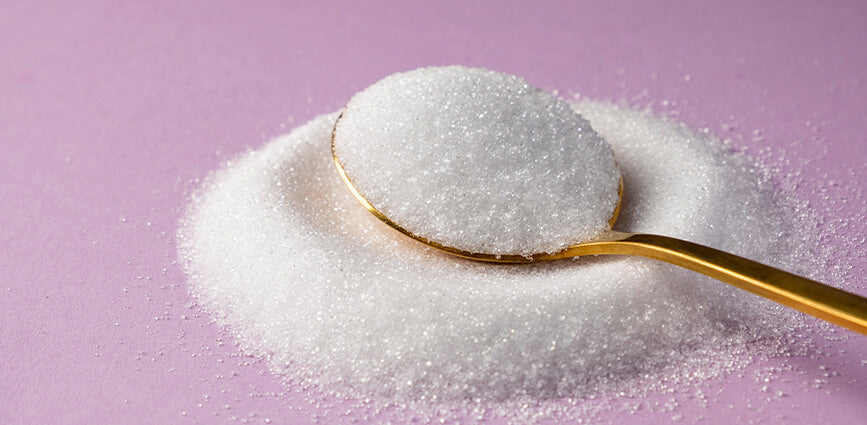
Making the Switch: How to Replace Erythritol with Allulose in Commercial Food & Beverage Products
If erythritol just got a lot more expensive for your business, you’re not alone.
Recent Antidumping (AD) and Countervailing Duty (CVD) decisions have caused a major price spike in erythritol imports, shaking up ingredient sourcing across the food and beverage industry. At the same time, consumers are becoming more ingredient-savvy—asking questions, reading labels, and looking for alternatives to sugar and sugar alcohols.
For commercial food and beverage brands, this shift brings both challenge and opportunity. If you're managing formulation, R&D, or purchasing, you might be asking:
- Is it time to move away from erythritol
- What’s the best substitute?
- And how do we make the switch without starting from scratch?
Let’s break it down.
Why Companies Are Moving Away from Erythritol
1. AD/CVD Tariffs Are Driving Up Costs
In early 2025, new trade decisions added steep tariffs to erythritol imported from China, where much of the global supply originates. As a result, costs have skyrocketed with little relief in sight.
2. Consumer Sentiment Is Shifting
While erythritol has long been a popular sweetener in keto and low-carb products, recent media coverage and evolving trends are pushing some consumers to look for “cleaner,” sugar-free options with less processing or simpler labeling.
3. Reformulation Pressure
If you're already updating SKUs to manage cost or update nutritional panels, now's the time to consider ingredients that offer more than a 1:1 erythritol swap—especially if they bring additional functional or label advantages.

Meet Allulose: A Smart Swap for Erythritol
Allulose is a rare sugar naturally found in fruits like figs and raisins. It has about 70% the sweetness of sugar and only a fraction of the calories—with no impact on blood sugar. It's considered a “non-sugar” for labeling purposes, which helps brands stay compliant with sugar reduction claims without sacrificing taste.
Why Allulose Works:
-
Zero sugar, zero net carbs, zero glycemic impact
-
Tastes like sugar (no cooling effect like erythritol)
-
Performs well in baking, beverages, sauces, frozen treats, and more
-
Mixes easily with other sweeteners like stevia for clean, cost-effective blends
Learn more about allulose here.
How to Replace Erythritol with Allulose
Good news: switching to allulose isn’t as complicated as you might think. Here are some pointers:
1. Adjust for Sweetness
Allulose is about 70% as sweet as sucrose, while erythritol is closer to 60–70%. If you're doing a direct swap, you may need to tweak the formula slightly—or combine with a high-intensity sweetener like stevia or monk fruit for a 1:1 sugar equivalency.
At Pyure, we offer custom stevia + allulose blends (and monk fruit + allulose blends) to help you hit the right sweetness and stay label-friendly.
2. Watch Functionality
Allulose browns more like sugar than erythritol does, making it ideal for baked goods, caramel-style syrups, and reduced-sugar confections. It also provides a smoother mouthfeel with no cooling effect.
3. Check Usage Rates
Depending on the product, allulose may require slight adjustments to moisture content or texture—especially in applications where erythritol provided bulk or crystallization. Our formulation team is available to help you dial it in.
Why Pyure?
We’re more than just sweeteners—we’re your formulation partner.
What sets us apart:
-
Decades of expertise in sweetener innovation
-
Organic and conventional allulose options
-
Sustainable, transparent sourcing
-
In-house formulation support and custom blending
-
FDA-compliant label guidance
Whether you're reformulating an existing product or developing a new one, we make it easier to deliver the taste your customers want—without the sugar (or the new sticker shock of erythritol).
Ready to Switch?
Let’s talk allulose. We can help you:
✔️ Replace erythritol without compromising taste
✔️ Reduce sugar across your product lines
✔️ Simplify your label and keep consumers happy
Reach out to our commercial team today to request a sample, schedule a call with our formulation experts, or get a quote. Contact Us Now.

